The service-learning program on which this project was based came to be called Service-Learning in Indigenous Communities (SLIC).It focused on collaboration betweenThe University of Sydney (the University) and Aboriginal Community Controlled Organisations (ACCOs).
This site records the impact and outcomes of these projects with two ACCOs. They are the Murdi Paaki Regional Assembly (MPRA) which is a peak representative structure that represents the interests of Aboriginal and Torres Strait Islander people in 16 communities across western New South Wales and the Tiwi Islands Regional Council (TIRC).
The SLIC program was run by the Office of the Deputy Vice Chancellor Indigenous Strategy and Services, (DVC ISS) at the University. The partnerships were established to facilitate the development of service-learning opportunities thatprovide intercultural and interdisciplinary placements for university students in Aboriginal Community Controlled Organisations while working towards community-identified goals.
In taking such a collaborative approach, the project confirmed the essential requirement for teaching and learning frameworks that necessarily include localised and contextualised Indigenous knowledges. The service-learning model aimed to not only provide transformative learning experiences for students but to also contribute to the delivery of community-driven solutions to real-world problems within Aboriginal contexts in Australia.
The proposed service-learning model sought to bring about a paradigm shift in the way ACCOs and universities develop and conduct partnerships. It was responsive to community needs and aspirations and centred on localised Aboriginal knowledges. It recognised the diversity of Aboriginal contexts and utilised the expertise of ACCOs members. The service-learning model prioritised ethical engagement and, importantly, aimed to provide tangible outcomes for ACCOs when working in service-learning partnerships with universities.
What was apparent in this project was that the relationship between ACCOs and the university, which is core to the program's success, was vitally important.
For ACCOs, the relationship is valued because it offers support and increases capacity to deliver their aspirations through high-level input and expertise that they might not otherwise have available to them. However, recognising the expertise and knowledge that ACCOs hold is also vital to the relationship. Service-learning projects must be driven by community needs and priorities.
For universities, there are clear benefits in providing these opportunities to students. There are also some challenges that need to be overcome if universities can genuinely and effectively balance ACCO priorities with institutional educational policies and operational structures
One obvious challenge is how to provide an interdisciplinary unit available to students across a range of degree programs. Some degrees do not have room for more electives and the timing of placements in semester can be an issue. However, even though the unit is interdisciplinary, there must be a faculty home with academic and organisational responsibility for the unit.
In addition to ensuring the most effective academic structure is in place, appropriate cultural protocols and practices must be embedded within the model and practice. This requires the right team to implement and nurture the vision, as well as the right academic staff to provide appropriate disciplinary knowledge and support.
The cultural competence of staff must be given weight when putting together the team. Students need to be supported through the experience and the cultural knowledge and competence of academic and professional staff must be well-developed.
Between 2016 and 2017, 90 students from The University of Sydney took part in four service-learning placements in three Aboriginal Community Controlled Organisations (ACCOs) - Murdi Paaki Regional Assembly in western NSW, and the Tiwi Islands Regional Council and the Gundjheimi Aboriginal Corporation in the Northern Territory. Students came from a range of disciplines.
This service-learning was a combination of community driven projects undertaken by interdisciplinary student teams with substantial cultural competence training.
Students undertook projects the communities wanted - for example, in the Murdi Paaki region communities wanted to reduce energy costs, and students worked with them to identify possible solutions, which included converting the whole community of Weilmoringle to solar energy.
Students had academic outcomes, real life experiences and gained cultural competence. They drew on multiple knowledge systems including Indigenous knowledges, that of their own discipline and that of the disciplines of other students.
This project highlighted that service-learning projects must deliver tangible results based on community identified needs. There are benefits in interdisciplinary learnings and that embedding the program in an effective academic program is essential. The importance of ethical engagement with ACCOs based on shared goals, ongoing organisational commitment and transparent communication cannot be understated.
In November 2018, community members, students and academics were interviewed about their experiences of participating in the program. These videos are what they had to say about the experience.

Anthony Knight is a Baarkinji man from Bourke, living in Weilmoringle. He is the Weilmoringle representative on the Murdi Paaki Regional Assembly. In this video Mr Knight talks about the issues with high power costs in Weilmoringle, including how people are impacted by the costs and have to go without other necessities such as food. He talks about working with the students for the service-learning project and how they connected with the community. Mr Knight wants to keep the engagement with the University for other projects which come up. He wants to put Weilmoringle back on the map.
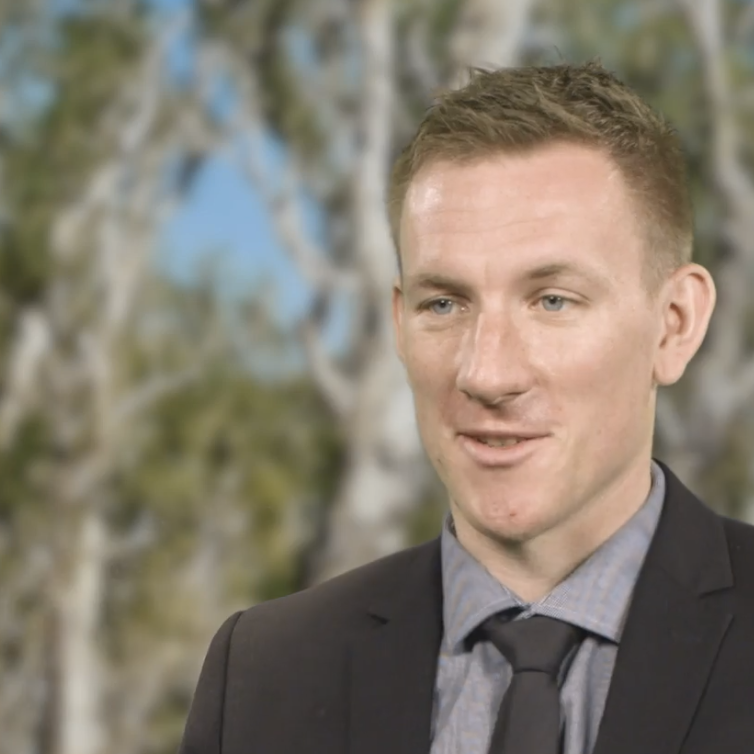
David Astalosh is the Grants and Policy Coordinator at Tiwi Island Regional Council. David talks about the Memorandum of Understanding and getting ready for the first students. The benefits of the program include students coming into an environment which is very different to the classroom. Being in remote communities challenges students at all levels. The students have the academic capacity to think about different solutions. They have fresh voices, but also understand the specific context. Mr Astalosh also talks about how students processed the experience of learning about community and how they were prepared to be in community and their orientation to Country.

Garwin Tipiloura is the Mayor of the Tiwi Islands Regional Council. He says that service-learning offered a great opportunity to try different ways to deliver services. The students helped the Council to explain their services and their role through their study. Mr Tipiloura talks about successful engagement. The study the students conducted is being taken to council to help inform the strategic plan. Mr Tioiloura thinks that Sydney University has taken on board the challenge of listening and working with them.
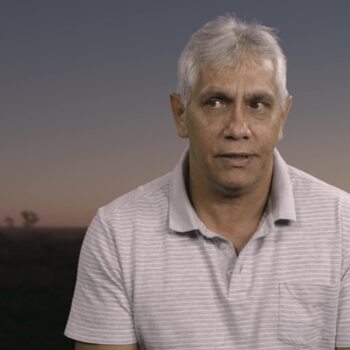
Des Jones, Chairperson of MPRA, takes a long-term view about the opportunities that the service-learning relationship can provide. The main principles they want to promote are autonomy, self-determination and that they are self-governing. Understanding that there are some technical skills that they don't have, service-learning provides some opportunities to transfer those skills. Mr Jones talks about some of the benefits that this approach to service-learning brings to the diverse communities that make up the MPRA.
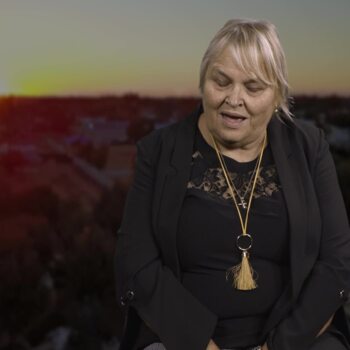
Grace Gordon is a Ngemba woman and is the Co Chair of the Brewarrina Working Party. As an Elder Ms Gordon comments that it's been wonderful to have young students to come out and work on country and have firsthand experience with First Nations people. Ms Gordon also stresses that the process of creating a report with community input was particularly useful and meant that community were involved in the whole process. Ms Gordon talks about the importance of understanding local context and how trusted relationships are built.

Jason Ford is a Ngemba man and the Co-Chair of the Brewarrina Working Party in the MPRA. Mr Ford was excited about the partnership because it offered an opportunity to start to talk about the aspirations from a local level and how a different model could work. The opportunity to work with students to help build capacity and to share cultural knowledge was important.

Jessica Blain was a Research Associate who coordinated the service-learning project. She had previously participated as a student. Ms Blain says that service-learning is important because it provides students with opportunities to work on projects identified as important to the community organisation. They can work on a real-world project with real-world implications. It provides opportunities to move beyond theoretical understanding of their discipline. Ms Blain also talks about the process of supporting the students and ensuring that they have the capacity to work effectively and ethically with communities.
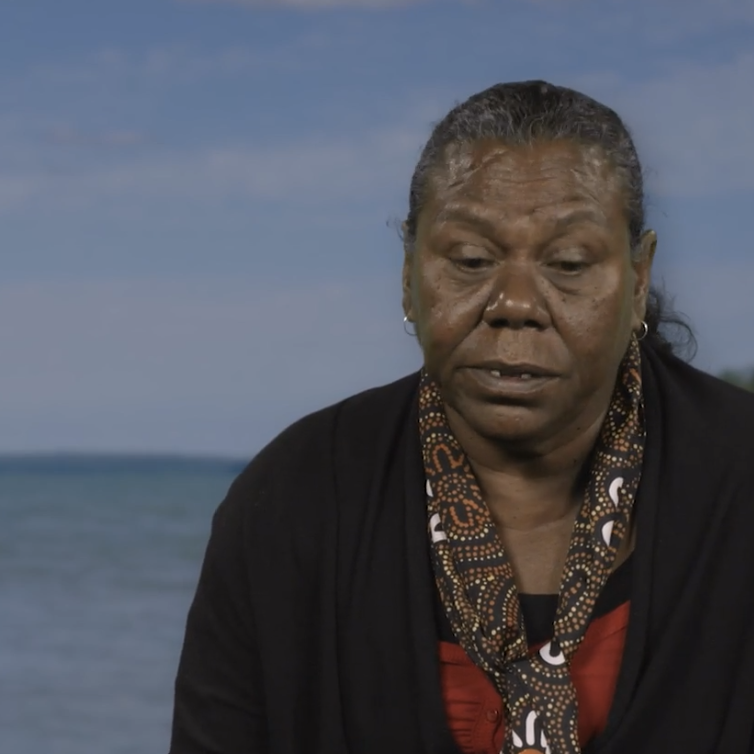
Mary Dunn is a Councillor on the Tiwi Island Regional Council. Ms Dunnhas advice for organisations who want to work with the community and how to respect community protocols. She also talks about how culture is being passed on to the young people.

Marion Scrymgourwas CEO of the Tiwi Islands Regional Council at the time of filming. Ms Scrymgourconsiders that service-learningprovides opportunities to think differently to create newpathwaysto work together. Ms Scrymgourtalks about the importance of creating an equal partnership. The preparation of the students before they come to the community is particularly important. Ms Scrymgouralso talks about future directions and gives advice about how other Universities can engage meaningfully with communities
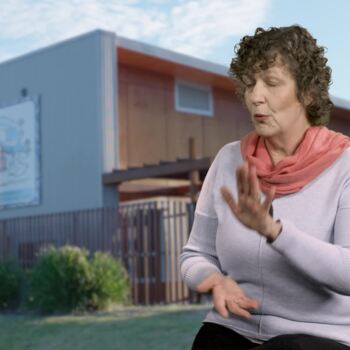
Merrolee Penman is a Senior Lecturer in Work Integrated Learning. Dr Penman provides insight into how the service-learning program can integrate with a placement for the Master of Occupational Therapist. The placement gave the students the opportunity to work at the level of community not just individuals and to learn to walk alongside Aboriginal communities. They were able to see what the occupational need is and to learn from the local community. They also learnt about the impact of colonisation and how to build relationships over time. In doing this placement they learnt a little bit about what it means to be part of a decolonisation process.

Professor Pip Pattison, Deputy Vice Chancellor Education has been a big supporter of the service-learning program. It is one of the ways to realise the aspirations of the Indigenous strategy and cultural competence as a core Graduate Quality. Professor Pattison talks about what has been learnt from this program including what it means to ask students to work across disciplines as well as across cultures. The preparation ofstudents and the provision of richer cultural understanding is important. She highlights the importance of supporting students when they came back. Professor Pattison says that the impact of the program on students' understanding and learning was exceptional and transformational. The program was courageous and ambitious and had some ups and downs, but it worked well to manage and adapt to the challenges and the students had a powerful experience.

Associate Dean Indigenous Strategy and Services in the School of Civil Engineering, Dr Matous was involved with one of the first programs in Kakadu. It is one of the few opportunities for students to do something truly interdisciplinary. Dr Matous explains that it is a different kind of relationship and way of working with Community. Students have to learn about the context and understand the history of this country and the community in which they are working.

Kieran Passmore was involved in setting up service-learning in the Faculty of Engineering and IT. Mr Passmore says that it's important to the students to give them a cultural experience and immersion while also delivering tangible outcomes for Indigenous communities. This program helps address the deficit in services that are often provided to communities. He also hoped that it might inspire young people from communities to study Engineering.

Julie Maakrun is Senior lecturer in school of Education in University of Notre Dame. Julie talks about a service-learning program at Notre Dame which is held in Kenya and Tanzania. She talks about how service-learning provided the vehicle to grow and develop and in areas of social justice and education. Ms Maakrun also talks about the impact of the service-learning experience on the students who participate. It has improved confidence and increased enthusiasm for studies. The greatest challenge however is the passion and dedication and energy of a small number of people

Michael is a history teacher and was studying a Masters in Human Rights. He found that service-learning was a good opportunity to apply knowledge in real world context. Mr Johnston talks about the preparation that he did to go on Country. One of the things he learnt was the powerful downward pressure of Western bureaucracy on communities. Michael talks about the benefits that such a program can have on non-Indigenous people to enable them to listen, learn and think critically about themselves and Australia.
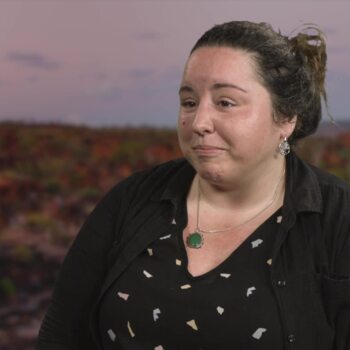
As a Postdoctoral fellow in School of Life and Environmental Sciences Dr Cross was involved in developing a new Unit of Study called Indigenous Land and Food Knowledge to introduce cultural competence into the Faculty.The Unit provides opportunities for students to learn about visiting people on Country, to learn about what they are doing, how they are managing land, what challenges they face, and how they are creating opportunities. The course is very much about context and geography. Dr Cross explains how they went about ensuring ethical engagement with the communities. She talks about key principles and suggestions for developing a course.

Natassia Chrysanthos was studying a Bachelor of Arts in Media and Communications. Ms Chrysanthostalks about why she took the program. She participated in a three-day preparation workshop run by the staff involved in the program and the National Centre for Cultural Competence. Ms Chrysanthos explains that a big part of going into community was to wipe clean any judgements that you might have and to engage with self-reflection. Locating your own cultural worldview and how we are all shaped by very unique set of cultural influences